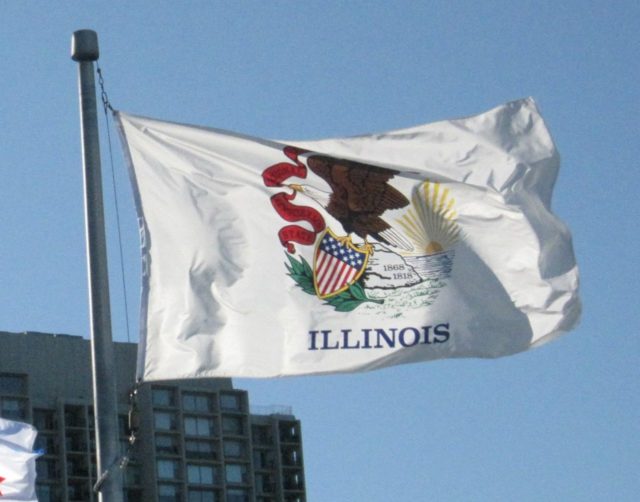Moody’s credit rating service warned on Wednesday that new tax hikes by Illinois’ Democrat-controlled legislature, which over-rode a Republican governor’s veto, may still leave the state insolvent and subject to its debt being the first in the nation to be downgraded to “junk.”
After a temporary lockdown of the Illinois State Capitol due to a potential terrorist throwing a white powdery substance at the governor’s office and other areas in the Capitol building, the Democrat-controlled House came back at 3:30 p.m. to vote 71-42 to override Gov. Bruce Rauner’s veto of a tax increase, giving Illinois its first budget since July 1, 2015.
There were a record 10 states that failed to pass a budget by the beginning of their fiscal year on July 1. The defaults came despite 49 states having balanced-budget requirements including. Of those, 45 have constitutional requirements to balance their budgets and four have statutory requirements. Only Vermont has no balanced-budget requirement.
It is not unusual in any given year to have one or even two states mired in political bickering, and failing to pass a budget until a day or two after their June 30 midnight deadlines. But Connecticut, Delaware, Maine, Massachusetts, New Jersey, Oregon, Rhode Island, Wisconsin, and Pennsylvania still do not have signed budgets almost a week later.
This year’s budget defaults are mostly due to new Government Accounting Standards Board (GASB) rules on disclosure of the massive under-funding of public sector pensions, causing taxpayer liability to spike by almost 50 percent, to $1.31 trillion.
According to Stanford University’s Institute for Economic Policy Research, five of the ten states that missed having a budget on time are also in the top ten U.S. states for largest per-household unfunded public pensions debt, including: #3 Illinois at $84,353; #4 Connecticut at $81,273; #6 Massachusetts at $65,075; #7 New Jersey at $63,297; and #9 Oregon at $57,844.
Illinois is considered financially the worst state in the nation. Despite being the most-taxed state, with an average state and local bill of $7,836, the state did not have a budget for over 700 days and racked up a backlog of $15 billion in unpaid bills.
The Democrats overrode Republican Gov. Bruce Rauner’s veto of a 32 percent hike of personal income taxes from 3.75 percent to 4.95 percent, which is expected to generate about $4.3 billion; and a 33 percent increase of the corporate tax rate from 5.25 percent to 7 percent, which is expected to generate another 460 million. But the Democrats then raised earned income for the poor, and reinstated tax credits for research and development.
Regardless, Moody’s credit rating service stated that it still may downgrade Illinois’ lowest-in-the-nation Baa3 credit rating on its debt to “junk,” because high tax rates are already driving away taxpayers and resulting in lower tax collections. Moody’s does not expect the latest tax increase to prevent Illinois’ long-term insolvency.
The real cause ofIllinois’ budget crisis is unfunded public employee pensions. The state’s five public pension systems in 2007 required public employees and state taxpayers to contribute about the same. $1.5 billion each. But over the last decade due, to pension spiking and the new GASB disclosure requirements, public employees’ contributions rose by a third, to $2 billion, but the taxpayers’ contribution more than quadrupled to $7 billion, according to the Illinois Policy Institute (IPI).
The IPI warns that over the next decade, public employee contributions will increase by about $500 million, to $2.5 billion; but Illinois’ state contributions will spike by another $2.5 billion, to about $9.5 billion.

COMMENTS
Please let us know if you're having issues with commenting.